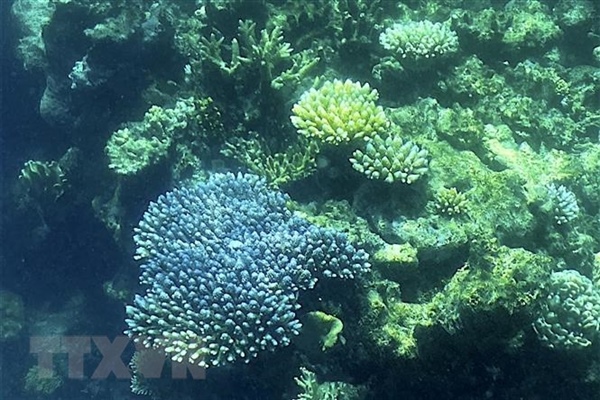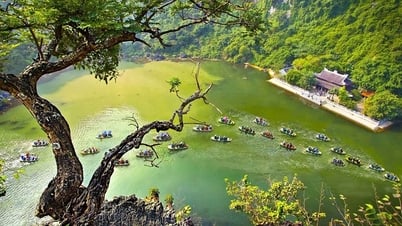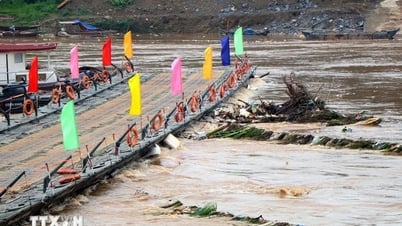
About one-sixth of the world's known deep-sea coral species are found in New Zealand waters. (Source: AFP/VNA)
By changing the way New Zealand manages its oceans, it could protect its diverse but critically endangered deep-sea corals.
This is the result of a new study published in the Journal of Environmental Management.
New Zealand is home to a rich diversity of deep-sea coral reefs. About one-sixth of the world's known deep-sea coral species are found in New Zealand waters.
According to the study, deep-sea corals play an important ecological role because they provide the necessary bottom structure for many other marine species.
However, deep-sea corals are under threat from the increasing warming and acidification of the ocean due to climate change, as well as the impacts of trawling.
Fish also live in coral reefs while many coral reefs stretch across vast areas of ocean, which can be hundreds of square kilometers in size.
These reefs are also essential sites for carbon and nitrogen mineralization.
The results also show that trawling impacts all coral species, especially benthic corals, according to study lead author Fabrice Stephenson, from Waitako University.
In the future, habitats will also decline due to climate change, and ocean space protection measures will not be able to provide sufficient conditions for the conservation of deep-sea coral species due to changes occurring under the impact of climate change and fishing activities.
The study also identifies several new ocean spatial protection zones that could help protect corals against the impacts of climate change while maintaining shelter for existing organisms.
It could take decades, if not centuries, for some deep-sea corals to recover from the devastation, Stephenson stressed.
The research was carried out by Waitako University, the National Institute of Water and Atmospheric Research, Victoria University of Wellington and the New Zealand Department of Conservation.
VNA





![[Photo] Memorial service for former President Tran Duc Luong in Ho Chi Minh City](https://vphoto.vietnam.vn/thumb/1200x675/vietnam/resource/IMAGE/2025/5/25/c3eb4210a5f24b6493780548c00e59a1)
![[Photo] President Luong Cuong receives Lao Vice President Pany Yathotou](https://vphoto.vietnam.vn/thumb/1200x675/vietnam/resource/IMAGE/2025/5/25/958c0c66375f48269e277c8e1e7f1545)
![[Photo] Festival of accompanying young workers in 2025](https://vphoto.vietnam.vn/thumb/1200x675/vietnam/resource/IMAGE/2025/5/25/7bae0f5204ca48ae833ab14d7290dbc3)




















































































Comment (0)